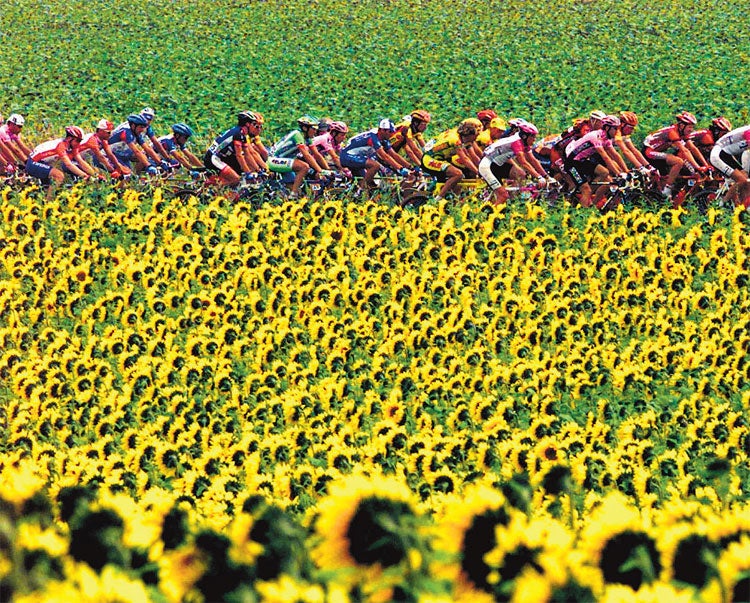Maison d'être: how to pick up your own piece of France
It costs less to buy across the Channel and the returns could be greater. Susannah Hickling maps out the bargains and the hotspots for British investors

The French way of life appeals to many stressed-out Brits great wine, sumptuous food and long, hot summers. And now, with UK house prices widely expected to be heading for a slowdown, France is seen as an increasingly attractive place to buy bricks and mortar.
"The predictions are that the French market is going to outperform the UK in 2008," says Trisha Mason, founder of French property agent VEF.
A perennially popular region is Provence, but beside Paris, it's also the most expensive area in France. Go west to Languedoc-Roussillon and the prices while climbing are more reasonable. It has the same Mediterranean sea, climate and landscape, but old stone houses and unspoilt villages are more plentiful. For the €148,000 (£110,000) you'd pay for a studio flat by the sea on the Côte d'Azur, you can buy part of a 14th-century fort in the picturesque town of Uzs in need of restoration. Advertised through estate agency Latitudes, it offers 207 square metres of living space and even includes a tower.
However, there has been a move away from big renovation projects, because of the stress of overseeing the work. New-build in a retro style is the thing of the moment. Estate agent Chestertons International is marketing Le Hameau du Temple, also in Uzs. The 16 three- and four-bedroom houses, overlooking vineyards, are built in traditional style from reclaimed stone and roof tiles. Each has a large garden and pool. Nîmes airport, served by Ryanair, is 35 minutes away. Prices start at €628,200.
Buying new can also cut the associated costs. Generally, purchasers pay 3 per cent legal fees and stamp duty on a new-build instead of the usual 8 per cent.
For bargains, you should look in Aveyron in southern France, and Auvergne, the stunning central region of extinct volcanoes. "Aveyron has very striking countryside," says Penny Zoldan of Latitudes. "It also has lots of old properties, and it's served by Ryanair which goes to Rodez."
Visitors to Auvergne have a choice of flying to Limoges with Ryanair or Clermont-Ferrand with Air France. "Auvergne is just about the cheapest place to buy in France," says Ms Mason. "It has a lot of good- sized stone houses and a double letting season in summer and for the skiing in winter." There is a good supply of three- and four-bedroom houses with land and views, in the region of €250,000. Most need very little decoration work.
Further north, the new high-speed rail link from St Pancras has whetted the appetite of UK investors. The Pas-de-Calais area, which includes Lille, a Eurostar stop, is seeing a surge of interest from first-time buyers pushed out of the market in the UK, and cross-Channel commuters. Areas within easy reach of major rail centres Avignon, Limoges, Poitiers for the Charentes region are set to come into their own.
While the typical British buyer remains the middle-aged couple looking for a charming country cottage for holidays and retirement, there is now more interest in buying as an investment. One way to do this is by purchasing a leaseback property. These are generally in newly built holiday complexes, where the owner grants a lease of up to 11 years to a travel firm, which will pay a guaranteed rental. You can claim back the VAT at 19.6 per cent and are usually offered between one week and several months of personal use.
A more straightforward buy-to-let apartment, with a guaranteed 4 to 4.5 per cent rental, might suit British investors better. The new-build management company will look after everything for you, and flats are likely to be easier to sell as they are usually in a block with a mix of owner-occupiers and tenants. But you won't get your VAT back.
Whatever you buy, it makes sense to organise your mortgage before you strike a deal. "Going for a French loan allows you to spread the risk because it's not taken out against your main home," says Benedict Maher of Conti Financial Services. "And the rates are cheaper. We can do a one-year fixed rate in euros of 4.75 per cent." There is also an arrangement fee of around 1 per cent of the loan, capped at €1,500.
If you're transferring money to France, think ahead. "Buy your currency at the same time as you agree your price," advises Ms Zoldan. "You don't want to gamble with how much it's going to cost."
Most people start their search on the internet. But it's sensible to buy through an agent who speaks your language and who can advise you on the purchasing process. Go it alone and it's too easy to get a nasty surprise. When Ms Mason was working as a sales agent in France, she had to deal with a contract that omitted the front garden. It took six months to sort out.
In France, as soon as you have agreed to buy, you sign a legally binding preliminary sales contract, the Compromis de Vente. At this point, you usually pay a deposit of 10 per cent.
After gathering all the paperwork together, which includes searches and reports on energy efficiency, and even termites in some areas, a lawyer called the notaire draws up the final contract, the acte de vente. The vendor and buyer usually go in person to sign it.
Subscribe to Independent Premium to bookmark this article
Want to bookmark your favourite articles and stories to read or reference later? Start your Independent Premium subscription today.

Join our commenting forum
Join thought-provoking conversations, follow other Independent readers and see their replies